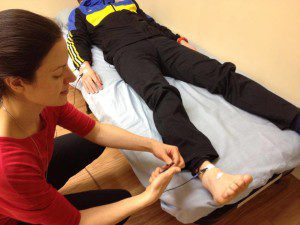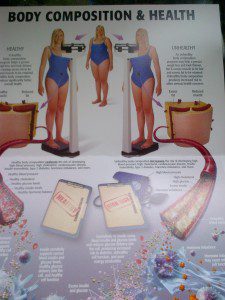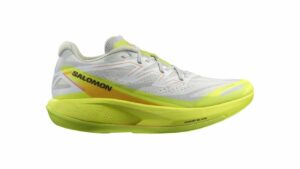Flabby, fab or fit?

“I run because it’s so symbolic of life. You have to drive yourself to overcome the obstacles. You might feel that you can’t. But then you find your inner strength, and realize you’re capable of so much more than you thought.” -Arthur Blank
Running, like life, is also about obstacles and challenges. This is my running battle for 2014: I’m going to train as hard as I can under the guidance of experts, including Reid Coolsaet and Eric Gillis, hopefully, for a lifetime marathon PB at the 2014 Ottawa Marathon.
Preparing in the fall, I started my real training plan in January and am already adjusting and learning how to handle the work-load of intense marathon training. Part of the challenge is not only to train as hard as I can with the online training program Vicsystem, but to also use all the advice from Reid, Eric and the other pros who are helping me to train properly. This means not only running and training at the correct pace, but figuring out my diet and the amount of sleep I need.
One of the first questions that arose was “am flabby, fab or fit?” What kind of body am I currently working with? I consider myself fit and not carrying a lot of extra weight, but I don’t like to assume and want to look at the weights, body mass index (BMI) and body makeup of elite marathoners and us mere mortals. Since I was trying to train like a pro I wanted to talk to some weight pros.
Fats up?
My expert is Rachel Caven, a registered nutritionist based in Ottawa. She specializes in creating individual eating plans based on your specific needs and goals. She studied biomedical sciences at the University of Guelph and went on to study at the Canadian School of Natural Nutrition, becoming a member of the Canadian Association of Natural Nutritional Practitioners.

Rachel says that body composition cannot be measured by your bathroom scale and that body weight alone is not an accurate measure of overall health. It doesn’t take into account muscle or fat mass. A body composition test accurately measures your body fat, lean mass, basal metabolic rate, hydration status and cellular health using bioelectrical impedance analysis, a painless and non-invasive technique. Apparently unhealthy body compositions can indicate too much fat in comparison to lean tissue. As your body’s fat to lean ratio increases, so do health risks.
Comparing me to the elites
Marathoners tend to be lean from all those miles, but does this mean we are healthy? Are we lean in the right places? And what is the optimal weight for a marathon runner to race at his best while staying healthy? I think the ideal weight is very individual. Reid and Eric have both said the same thing.
“I believe you can’t carry extra weight and race your best, but I never skip meals or try too hard to slim down,” Reid Coolsaet tells me. “I let mileage and sensible, nutritious eating get me to where I need to be. If you lose too much weight you’ll lose power and risk injury and burnout.”
Reid Coolsaet weighs in at 62 kilograms and is 173cm tall, making his BMI 20.7.
Just out of interest, here are some facts on marathon weights and body fat to chew on:
Stats from US Olympic marathon trials qualifiers (2004)
MEN
Elite (<2:15) National class (2:15-2:22)
•Height 5ft 9 5ft 11
•Weight 130.9lbs 145.4lbs
•BMI 19.9 20.7
WOMEN
Elite (<2:40) National class (2:40-2:48)
•Height 5ft 5 5ft 5
•Weight 112lbs 112lbs
•BMI 19.0 19.1
In general, marathon runners are really lean.
At 6’2, I’m a bit tall for the average marathoner. I should weigh between 140 -150 lbs if I were to have an elite, national class runner’s body. Eeeks — have weighed 150lbs, but not for long periods of time. I’m not saying I’m giving up a kidney or going on some weird diet. I’m just researching and find the statistics interesting.
But there are always anomalies also. Ran for a few minutes once in a half-marathon with the former world champion marathoner Douglas Wakiihuri, who is 6’1.
I was measured, weighed, and hooked up for tests. Rachel and I sat and discussed what the results meant. The test was not only able to tell me about my fat and muscle mass, but also the number of calories my body would normally burn without running . Rachel was also able to tell me I was well hydrated, and had healthy weight and body composition.
Noel: 6’2” 160lbs BMI 21.04 BMR 1726.9cal Fat Mass 14.1% Fat Free Mass 85.9%
The plan is now to check in midway through my training and before, or just after, my goal marathon in May. It will be interesting to see what happens.
So, I’m healthy and have a lean body that is not far off the frames of a decent national-class marathoner. Tie this in with healthy eating, sleep and proper training and see what happens. It is only January and I have a few months of training to go. I took Eric’s advice and will be working with Rachel, my nutritional friend and expert Alli and others to try and keep the doors from shaking off the car as I push my limits.
My friend Alli, who is also a runner and nutritional expert, reminds me that, “body fat has direct effect on performance as a distance runner. Each additional pound of unnecessary fat can add time to your race. Conversely, fat is required by our bodies as part of our cells and to protect our vital organs. Too little body fat and our systems start to break down and can have negative effects on performance.”
See you on the roads or in the blogosphere.
Do you have a running story to share?
Runningwriter@hotmail.com or find me on Twitter @Noel Paine
For more information on my training and adventures visit my personal blog.



